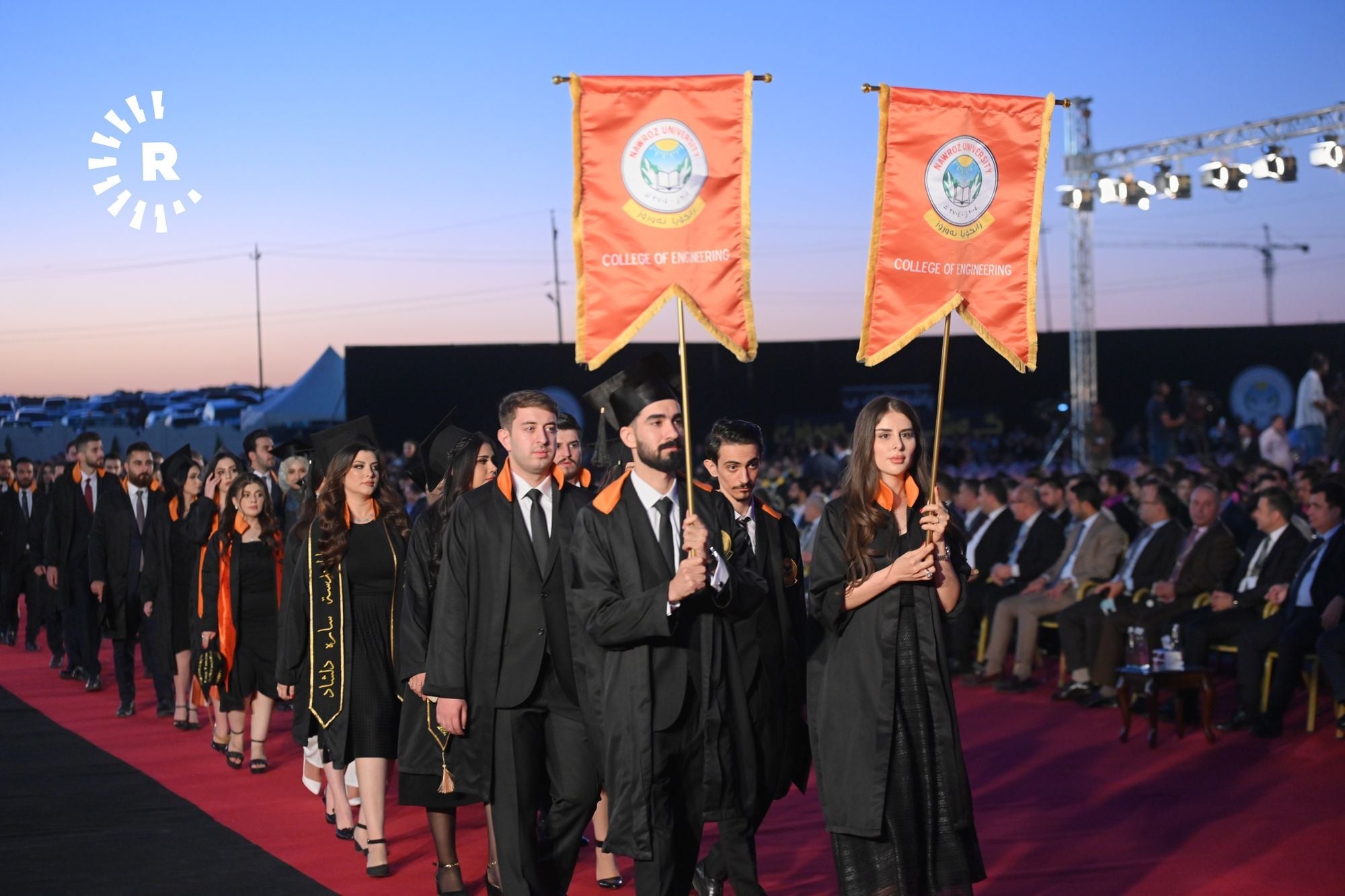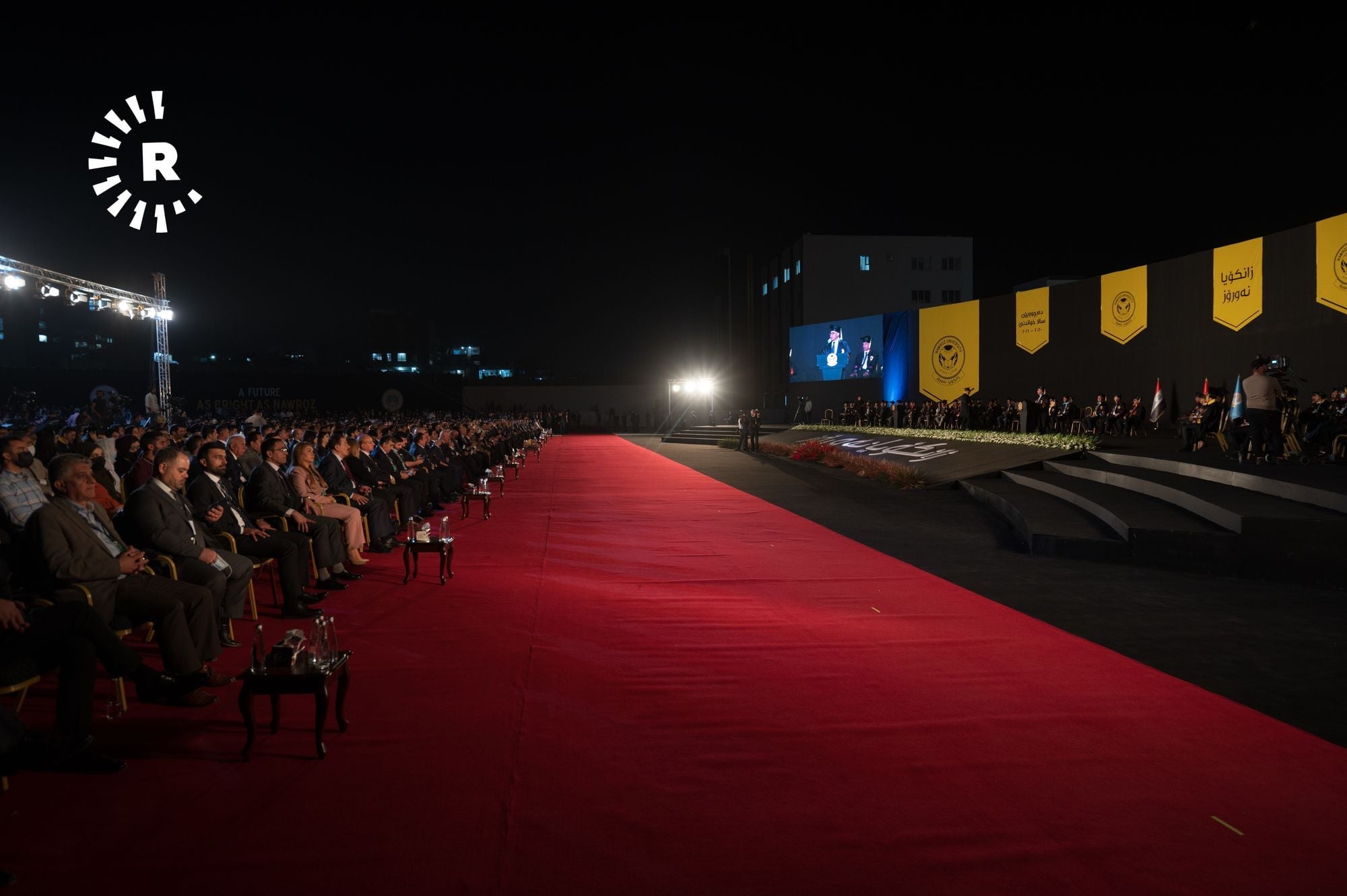
Duhok's Nawroz University holds graduation ceremony for 1,600 students on October 24, 2021. Photo: Rudaw/screenshot
ERBIL, Kurdistan Region - A graduation ceremony for two classes of more than 1,600 students at Duhok’s Nawroz University took place on Sunday, with students hoping for employment amid a years-long hiring freeze in the Kurdistan Region’s public sector.
“At this campus, we spent four beautiful years of our lives,” Zhwan Nawzad, a graduate and commencement speaker, said during the ceremony. “We all know that we have proven ourselves to be remarkable students, even in the face of adversity that our country is going through, starting from war on terror all the way to COVID-19 pandemic.”
Amid a total shutdown due to the COVID-19 pandemic, universities in the Kurdistan Region decided to end the 2019-2020 academic year early, and students left their final year of school without a graduation ceremony. This week, a combined total of 1,658 students from the classes of 2020 and 2021 graduated from Nawroz University. The university, founded in 2004, has had about 10,000 graduates, its president said.
The Kurdistan Region is gradually emerging from a protracted financial crisis, which froze recruitment to the public and private sectors and left many state employees unpaid for months at a time.

Nawroz University president Abulwahab Khalid Mosa told Rudaw that the university has considered that its graduates “not only can find job opportunities in public sector, but in the private sector as well.”
According to Mosa, up to 17 percent of previous graduates have been employed.
“We coordinate with chamber of commerce and non-governmental organizations to provide job opportunities for graduates,” he said.
“We hope to serve our people and our country,” one graduate of the university’s international relations department said, adding that they hope the government and sectors related to their field “care about these students.”

Additional reporting by Nalin Hassan and Naif Ramazan







Comments
Rudaw moderates all comments submitted on our website. We welcome comments which are relevant to the article and encourage further discussion about the issues that matter to you. We also welcome constructive criticism about Rudaw.
To be approved for publication, however, your comments must meet our community guidelines.
We will not tolerate the following: profanity, threats, personal attacks, vulgarity, abuse (such as sexism, racism, homophobia or xenophobia), or commercial or personal promotion.
Comments that do not meet our guidelines will be rejected. Comments are not edited – they are either approved or rejected.
Post a comment